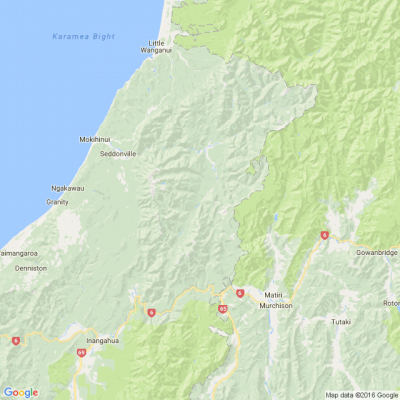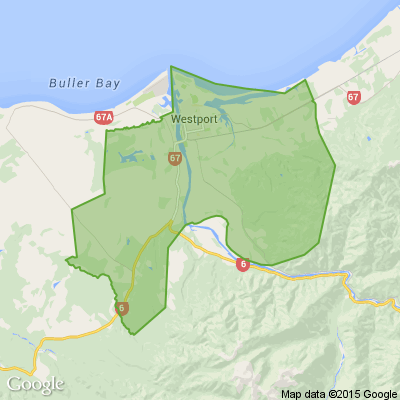Coast council LTP submissions ‘fairly low’
By local democracy reporter Brendon McMahon:
Just six of 25 submitters to the West Coast Regional Council 2024-34 long-term plan (LTP) will appear at a hearing in Greymouth on Tuesday.
The proposed 10 year plan proposes an average 27% general rates increase in 2024-25 to partly fund a proposed budget of $25.2 million for the next financial year.
The other option in year one - to increase general rates by 44% - was based on rates alone funding.
However the preferred option in the proposed LTP is to reduce the full annual budget impact on ratepayers in the first few years by borrowing.
Engagement in this LTP has been relatively low compared to the previous two LTP processes in the past seven years.
A report for Tuesday's hearing notes previous LTPs received "moderate to high" submissions.
The current 2021-31 LTP received 621 submissions while the previous LTP in 2018 saw 73 submissions.
"Compared to the 22,000 rating units on the Coast, it's a fairly low turnout," West Coast Regional Council chairperson Peter Haddock admitted on Monday.
But he believed the low submissions in 2024 was a positive reflection on what the current council had moved on in the past year.
"It shows clearly that people understand that there has been clear change at council for the better.
"No-one wants rates increased but I think that it shows that change was necessary.
"The council was in a pretty broken state and it needed money spent on it right across the board."
Haddock cited the council's less than fit IT system, and accounting system linked to the "rates error" late in 2023 as an example, aside from the governance upheaval.
He said the LTP strategy was to invest in staff and systems to ensure "a well oiled machine".
At the same time the regional council general rate, compared to the three district councils was "relatively low," he said.
People still needed to watch their targeted special rating district levies, above the general rates and uniform annual general charge.
Significantly the proposed LTP ushered in special rates for Westport residents (a 539% bump) for the first time to pay for the already budgeted share of their Government co-funded $22.9m flood resilience scheme.
Yet there was apparently little kickback on it, Haddock said.
"I think it shows that people accepted that they want that for the betterment for their community.
"It's unfortunate it does cost … let's not forget they are being subsidised."
Haddock compared the future benefit for Westport to that of the Greymouth Floodwall scheme via special rates for 30 years, "for the betterment of the town".
Under the proposed LTP "balancing the budget" and whether council should shoulder the Predator Free Te Kinga project were the two main consultation topics.
Ratepayers were also asked to comment on the LTP financial and infrastructure strategy, policies, and user fees and charges.
Comment was also sought feedback on the planned transfer to its ownership of the Grey District Council owned Greymouth Floodwall, and the Westland District Council-built Havill Wall protection bank at Franz Josef.
Under the first general rates increase option all properties in the Grey District will pay the following per $100,000 of capital value:
* General rate, a $14.70 increase from $50.26 to $64.96 in 2024-25,
* Emergency management levy increase from $10.17 to $4.58,
* The one district plan (Te Tai o Poutini Plan) decreases from $15.22 to $3.99 in 2024-25,
* The Uniform Annual General Charge in 2024-25 increases $36.31 to $192.59.
It means a Grey District dwelling worth $300,000 will see their total general rates bill increase to $443.70 in 2024-25.
This is made up of:
* General rate, $194.89
* Emergency management, $4.27
* Te Tai o Poutini Plan, $11.96
* Fixed UAG charge, $192.59
That excludes any special rating district levy, such as for the Greymouth Floodwall area.
Poll: Should the government levy industries that contribute to financial hardship?
As reported in the Post, there’s a $30 million funding gap in financial mentoring. This has led to services closing and mentors stepping in unpaid just to keep helping people in need 🪙💰🪙
One proposed solution? Small levies on industries that profit from financial hardship — like banks, casinos, and similar companies.
So we want to hear what you think:
Should the government ask these industries to contribute?

-
60% Yes, supporting people is important!
-
25.7% No, individuals should take responsibility
-
14.3% ... It is complicated
A Neighbourly Riddle! Don’t Overthink It… Or Do?😜
Do you think you know the answer? Simply 'Like' this post if you know the answer and the big reveal will be posted in the comments at 2pm on the day!
If you multiply this number by any other number, the answer will always be the same. What number is this?

Have you got New Zealand's best shed? Show us and win!
Once again, Resene and NZ Gardener are on the hunt for New Zealand’s best shed! Send in the photos and the stories behind your man caves, she sheds, clever upcycled spaces, potty potting sheds and colourful chicken coops. The Resene Shed of the Year 2026 winner receives $1000 Resene ColorShop voucher, a $908 large Vegepod Starter Pack and a one-year subscription to NZ Gardener. To enter, tell us in writing (no more than 500 words) why your garden shed is New Zealand’s best, and send up to five high-quality photos by email to mailbox@nzgardener.co.nz. Entries close February 23, 2026.









 Loading…
Loading…





